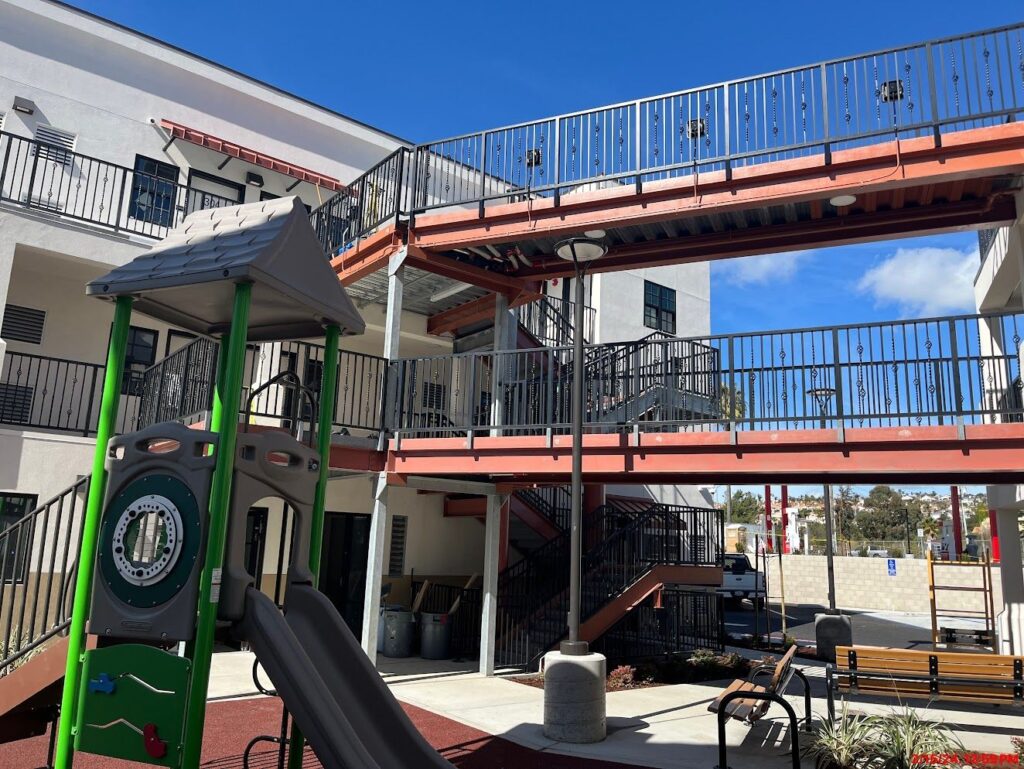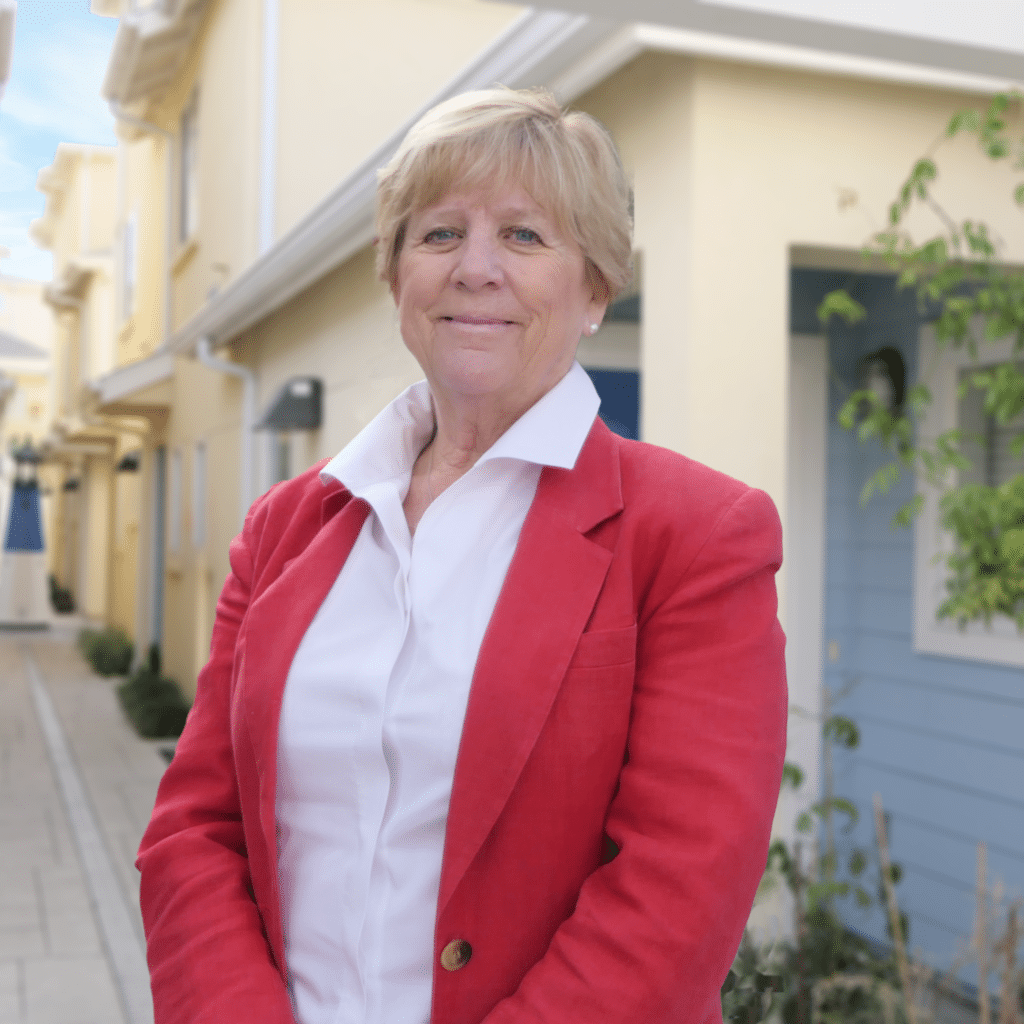CA Development Targets Unhoused, Transitional Youth

By Mark Fogarty
6 min read
An increasingly visible societal housing problem is young people who age out of foster care. These at-risk youths face housing insecurity or outright homelessness. However, some affordable multifamily developers are beginning to target this vulnerable population. That includes the developers of the Pismo Terrace project in Pismo Beach, CA, which has set aside housing units for at-risk youth and adults experiencing homelessness.
Of the 50 units of affordable housing at the new $31 million housing development, 24 have been designated for those experiencing homelessness, with a subset of eight of those set aside for transitional youth at risk of homelessness after aging out.
Ken Trigueiro, chief executive at developer People’s Self-Help Housing (PSHH), notes the firm has more than a dozen licensed clinical social workers to help provide supportive services needed by formerly unhoused and transitional youth.
“We’ve got about 5,000 residents that live in our properties,” Trigueiro says, “And we’ve served 800 households that were formerly experiencing homelessness.”
Supportive services “are a super effective key to addressing issues that have led in the past to people becoming homeless. We’ve been doing it for 20 years and we find that it’s so effective in analyzing what’s going on with people. And of course, it’s always unique for each person.”
Social workers, both staff and outside agencies, like the 5 Cities Homeless Coalition, are a way “to plug people into meeting their needs and the resources we have.”
“It’s quite a collaborative community project,” Trigueiro says, for the supportive services, as the county of San Luis Obispo is also participating by supplying resources, as is the Housing Trust Fund of San Luis Obispo County and the City of Pismo Beach.
“We’re all working together in unison,” he says.
State Program Helped
The supportive housing was financed partly by a California program called No Place Like Home that “funds the development of permanent supportive housing for persons who need mental health services and are experiencing homelessness, chronic homelessness or at risk of chronic homelessness,” according to the state.
5 Cities Homeless Coalition “helped us understand what is going on in our communities for us to respond to,” especially regarding the at-risk youth, says Trigueiro.
5 Cities is going to work with individuals or households at the development “to try to understand how they can support them in terms of job and educational opportunities.”
They will be focused on the transitional youth, while PSHH personnel will service other residents (all are at 60 percent or below area median income).
Trigueiro says of housing for those transitioning out of foster care, “There is no supply and what we do have is too expensive,” citing home medians of $800,000 to over $1 million in the area.
Demand in the Pismo Beach area (the city on the central coast of California, about halfway between Los Angeles and San Francisco) is very high for affordable housing. PSHH has 2,000 affordable housing units under management and a waiting list of 15,000 households.
Rents are high, as well. “We’re trying to give those 18- to 24-year-olds an opportunity to come into those units at a rent that’s affordable to them.” At Pismo Terrace, rent is set at around 30 percent of their income.
“We want to make sure those housing situations are stable, and once people are in permanent housing that’s affordable, to then work on some additional opportunities to make progress and keep moving in the right direction.”
On-Site Offices for Services
PSHH maintains on-site offices to deliver supportive services. “It helps the property operation to be well-focused,” Trigueiro says. Having an on-site property manager also serves as an informal front line for alerting supportive services that there might be something they should offer to assist.
The financing of Pismo Terrace is typically complicated as most affordable housing developments are. There was a four percent Low Income Housing Tax Credit award paired with a tax-exempt bond and several state, city and county sources. There is also a permanent mortgage from Chase Bank with a rate locked in below six percent.
There were also state tax credits awarded, with a special feature that they are “certificated.” This means that an investor can resell the credits in an echo of the huge secondary market on the residential mortgage side. That adds value to the equity contribution of the project.
But “the state only allows one resale,” he says.
The National Equity Fund was the investor in the deal.
The $31 million total development cost includes $17 to $18 million for construction, at a cost of about $350,000 per unit, with the rest going to land acquisition, soft costs, soft fees and a deferred loan from the city.
PSHH will only have to repay the city loan from excess cash flow on the project.

The unit mix comes to 12 two-bedrooms and 38 one-bedrooms. Trigueiro notes that household sizes PSHH serves are becoming smaller, with an average of 1.9 people per household, making one- and two-bedroom units the sweet spot.
As far as design goes, Pismo Terrace is “a pretty warm place to be.”
“It’s really beautiful, which helps residents’ state of mind,” says Trigueiro. Color palettes throughout the property were designed to be calm and cooling as well.
The project began back in 2019 and was delayed by the COVID pandemic and the challenges that were presented as far as supply shortages and inflation. But overall, “it went pretty well,” he says.
The project is fully leased, and all residents have moved in, he reports.
Honoring the Living

The naming of affordable housing facilities often honors great housing leaders who have passed on. At Pismo Terrace, a living leader is being memorialized.
Pismo Terrace has the Shelly Higginbotham Community Room, named after a former three-term city council and mayor of Pismo Beach, CA lauded for her vast experience and passion for affordable housing and children’s services.
Higginbotham is currently chair of People’s Self-Help Housing. PSHH lists a large number of civic and housing groups Higginbotham has been associated with, including the League of California Cities, League of Women Voters, the 5 Cities Homeless Coalition, the Child Development Resource Center, the Children’s Resource Network and the Women’s Legacy Fund through the Community Foundation San Luis Obispo County.
PSHH notes that in 2017, Higginbotham’s service was recognized with the Women of Distinction award for volunteerism.
Ken Trigueiro, chief executive of PSHH, says, “It was a special thing to be able to honor her. She has served the community well, especially the special needs population.”